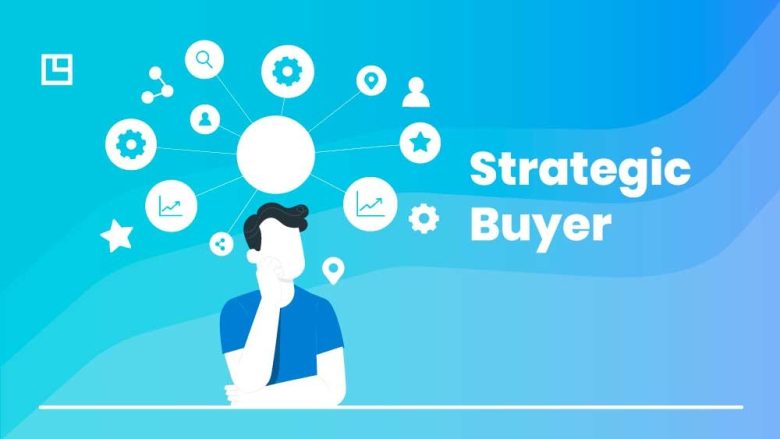Why Strategic Buyers Are Paying More than Financial Buyers in IT Services Acquisitions
If you’ve built an IT services company, you’ve probably had that email land in your inbox.
A private equity firm saying they’re “rolling up” companies like yours.
A larger competitor mentions “synergies” and “growth opportunities.”
On the surface, all buyers seem the same—they’re interested in your company, and you want a fair deal. But here’s the truth: not all buyers see your business the same way.
Some will offer you a valuation that feels like a spreadsheet exercise. Others will surprise you with a number that makes you wonder, “What do they see that’s worth paying extra for?”
The answer often comes down to who the buyer is—and why they’re buying.
Strategic Buyers vs. Financial Buyers (and why it matters)
Let’s strip away the jargon.
- Financial Buyers (private equity firms, family offices, investors) buy companies to generate returns. They care about clean numbers, good margins, and the potential to “buy, improve, and sell” in a few years.
- Strategic Buyers are companies—often larger IT services firms, product companies, or enterprises from adjacent sectors—buying for a different reason: your company helps them grow faster, fill a gap, or gain a competitive edge.
One sees you as an asset.
The other sees you as a missing piece of their growth story.
Why Strategic Buyers Often Pay More
Here’s why the same business can get very different offers depending on who’s sitting across the table:
1️. They See Synergies You Can’t Monetise Alone
When Persistent Systems acquired MediaAgility, a U.S.–India–based Google Cloud partner, in 2022, industry insiders reported the deal closed at close to 2x revenue—well above what a private equity buyer would have offered.
Why? Because Persistent could plug MediaAgility’s team and cloud expertise straight into its global operations, it immediately won larger enterprise projects.
That premium wasn’t about today’s revenue—it was about tomorrow’s opportunities.
2️. They Value Relationships and Reputation
A financial buyer sees contracts and client concentration risk.
A strategic buyer looks at how you’re embedded in those clients.
- Do you have relationships in Fortune 500 companies?
- Are you trusted in a niche (like Dynamics 365 or cybersecurity)?
- Does your team have skills they can’t easily hire?
Take Accenture’s acquisition of Flutura (an industrial AI solutions firm) in 2023. Accenture didn’t just want Flutura’s tech—it wanted its deep relationships with oil & gas clients and its reputation as an industrial AI expert. Those relationships don’t show up neatly on a P&L, but they commanded a premium price.
3️. They Pay to Skip the Line
Building a new capability or entering a new market takes years.
For a strategic buyer, acquiring your company is like hitting “fast forward.”
- Why build a Salesforce practice from scratch when you can buy a 40-person team already running projects?
- Why spend 18 months setting up a delivery centre in India when you can acquire one and be operational next quarter?
When ThoughtWorks acquired Gemini Solutions in India (2021), they weren’t buying a book of business—they were buying instant scale and a ready-made engineering talent base.
That urgency translates into a higher price.
4️. They’re Playing a Long Game
Financial buyers have an exit clock—usually 5–7 years.
Strategic buyers aren’t thinking about flipping you—they’re thinking about what your business will help them become over the next decade.
A Bain & Co. study found that strategic buyers in IT services regularly pay 20–40% more than financial buyers, because they see your company not as an isolated investment, but as a permanent part of their growth engine.
What Does This Mean for Founders?If you’re a founder thinking about selling—whether it’s next year or five years from now—understanding this difference is critical.
Because if you want to attract the buyers who will pay more, you need to build with them in mind.
How to Attract Strategic Buyers (A Quick Checklist)
- Own a niche, don’t just “do IT.” Be the go-to shop for something valuable—AI automation, DevOps, Dynamics 365, etc.
- Make your client relationships visible. Document success stories, reference clients, and your role in their ecosystem.
- Strengthen your team’s expertise. Strategic buyers pay for talent they can’t easily hire elsewhere.
- Clean up your house. Even strategic buyers need financials, contracts, and compliance to be clean—it makes integration easier.
- Tell your growth story. Don’t just present numbers—show how your company helps them grow faster.
The Bottom Line
Two buyers can look at the same 80-person IT services firm and see two different things.
One sees a set of contracts and a profit margin.
The other sees a launchpad for a new market, new capabilities, and new revenue streams.
The second one—the strategic buyer—is the one who will pay more.
If you position your company as that missing piece, you won’t just get offers—you’ll get offers that change what’s next for you, your team, and the company you’ve built.


Comments are closed.